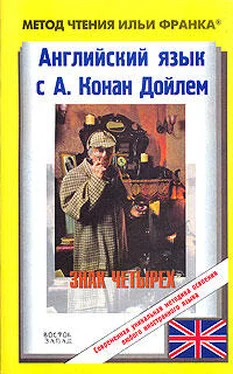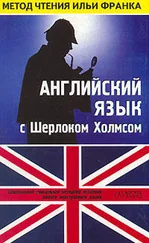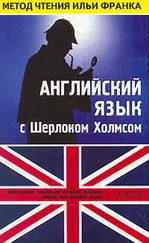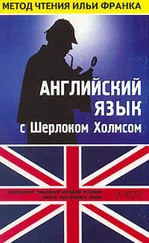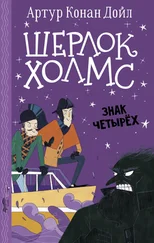building ['bIldIN], isolate ['aIs@leIt]
"The river washes along the front of the old fort, and so protects it, but on the sides and behind there are many doors, and these had to be guarded, of course, in the old quarter as well as in that which was actually held by our troops. We were short-handed, with hardly men enough to man the angles of the building and to serve the guns. It was impossible for us, therefore, to station a strong guard at every one of the innumerable gates. What we did was to organize a central guard-house in the middle of the fort, and to leave each gate under the charge of one white man and two or three natives. I was selected to take charge during certain hours of the night of a small isolated door upon the southwest side of the building. Two Sikh troopers were placed under my command, and I was instructed if anything went wrong to fire my musket, when I might rely upon help coming at once from the central guard. As the guard was a good two hundred paces away, however, and as the space between was cut up into a labyrinth of passages and corridors, I had great doubts as to whether they could arrive in time to be of any use in case of an actual attack.
"Well, I was pretty proud at having this small command given me (ну, я был довольно горд тем, что мне был доверен: «дан» маленький отряд) , since I was a raw recruit, and a game-legged one at that (так как я был новобранец, да к тому же и хромой; raw — сырой; необученный; неопытный; recruit — новобранец, призывник; game — искалеченный; хромой) . For two nights I kept the watch with my Punjaubees (две ночи я нес караул с моими пенджабцами; to keep — держать; защищать, охранять; watch — пристальное наблюдение; стража, караул) . They were tall, fierce-looking chaps (это были высокие парни свирепого вида) , Mahomet Singh and Abdullah Khan by name (которых звали Мохаммед Сингх и Абдулла Хан) , both old fighting-men who had borne arms against us at Chilian-wallah (оба воины со стажем, которые воевали против нас еще под Чилианвалла; old — старый; опытный, долго занимавшийся чем-либо; to bear — носить, нести; arms — оружие; to bear arms — носить оружие; служить в армии; to bear arms against — поднять оружие на кого-либо, восстать против кого-либо) . They could talk English pretty well, but I could get little out of them (они довольно хорошо могли говорить по-английски, но я мало чего мог от них добиться) . They preferred to stand together and jabber all night in their queer Sikh lingo (они предпочитали держаться вдвоем и болтать всю ночь на своем странном сикхском; to jabber — болтать, трещать; говорить быстро и невнятно; lingo — малопонятный жаргон) . For myself, I used to stand outside the gate-way (что касается меня, я предпочитал стоять за воротами; gateway — ворота; вход) , looking down on the broad, winding river and on the twinkling lights of the great city (и смотреть вниз на широкую извилистую реку и на мерцающие огни большого города) . The beating of drums, the rattle of tomtoms (дробь барабанов и тамтамов; beating — стучание, биение, бой; rattle — треск, грохот; стук) , and the yells and howls of the rebels, drunk with opium and with bang (крики и вопли мятежников, пьяных от опиума и гашиша; bang = bhang — индийская конопля; гашиш) , were enough to remind us all night of our dangerous neighbours across the stream (служили нам достаточным напоминанием: «были достаточными, чтобы напоминать нам всю ночь» о наших опасных соседях за рекой) . Every two hours the officer of the night used to come round to all the posts, to make sure that all was well (каждые два часа дежурный офицер обходил посты, чтобы убедиться, что все было хорошо) .
raw [rO:], recruit [rI'kru:t]
"Well, I was pretty proud at having this small command given me, since I was a raw recruit, and a game-legged one at that. For two nights I kept the watch with my Punjaubees. They were tall, fierce-looking chaps, Mahomet Singh and Abdullah Khan by name, both old fighting-men who had borne arms against us at Chilian-wallah. They could talk English pretty well, but I could get little out of them. They preferred to stand together and jabber all night in their queer Sikh lingo. For myself, I used to stand outside the gate-way, looking down on the broad, winding river and on the twinkling lights of the great city. The beating of drums, the rattle of tomtoms, and the yells and howls of the rebels, drunk with opium and with bang, were enough to remind us all night of our dangerous neighbours across the stream. Every two hours the officer of the night used to come round to all the posts, to make sure that all was well.
"The third night of my watch was dark and dirty, with a small, driving rain (третья ночь моего дежурства была темной и ненастной, непрестанно лил мелкий дождь; dirty — грязный; ненастный; driving — движущий; сильный, неистовый; driving rain — ливень) . It was dreary work standing in the gate-way hour after hour in such weather (было тоскливо: «было тоскливым занятием» стоять час за часом в воротах в такую погоду) . I tried again and again to make my Sikhs talk, but without much success (я пытался раз за разом завязать разговор с моими сикхами, но без особого результата) . At two in the morning the rounds passed, and broke for a moment the weariness of the night (в два часа утра прошел обход, на миг развеяв монотонность ночи; round — круг; обход; to break — ломать; weariness — усталость; скука, утомительность) . Finding that my companions would not be led into conversation (обнаружив, что моих компаньонов невозможно завлечь беседой; to lead — вести, возглавлять; вступать) , I took out my pipe, and laid down my musket to strike the match (я достал трубку и положил мушкет, чтобы зажечь спичку; to take — брать, взять; to lay — класть, положить; to strike — ударять/ся/, стукать/ся/) . In an instant the two Sikhs were upon me (мгновенно оба сикха бросились на меня: «были на мне») . One of them snatched my firelock up and levelled it at my head (один из них схватил мое ружье и направил его мне в голову; to snatch — хватать; firelock — кремневое ружье; to level — равнять, выравнивать; наводить оружие, целиться) , while the other held a great knife to my throat and swore between his teeth that he would plunge it into me if I moved a step (в то время как другой приставил большой нож мне к горлу, сквозь зубы пригрозив, что перережет мне глотку: «вонзит его в меня», если я пошевелюсь: «двинусь хоть на шаг»; to hold — держать; to swear — клясться; to plunge — нырять; окунаться; погружать; вонзать) .
Читать дальше
